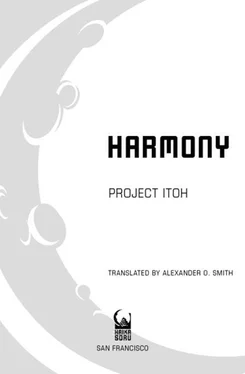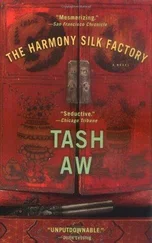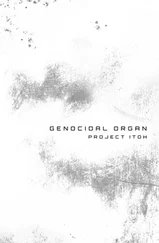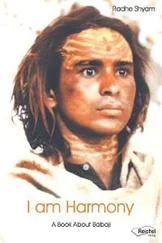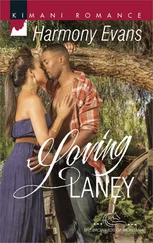Itoh, Project - Harmony
Здесь есть возможность читать онлайн «Itoh, Project - Harmony» весь текст электронной книги совершенно бесплатно (целиком полную версию без сокращений). В некоторых случаях можно слушать аудио, скачать через торрент в формате fb2 и присутствует краткое содержание. Год выпуска: 2010, Издательство: Haikasoru/VIZ Media, Жанр: Старинная литература, на английском языке. Описание произведения, (предисловие) а так же отзывы посетителей доступны на портале библиотеки ЛибКат.
- Название:Harmony
- Автор:
- Издательство:Haikasoru/VIZ Media
- Жанр:
- Год:2010
- ISBN:нет данных
- Рейтинг книги:4.33 / 5. Голосов: 3
-
Избранное:Добавить в избранное
- Отзывы:
-
Ваша оценка:
- 80
- 1
- 2
- 3
- 4
- 5
Harmony: краткое содержание, описание и аннотация
Предлагаем к чтению аннотацию, описание, краткое содержание или предисловие (зависит от того, что написал сам автор книги «Harmony»). Если вы не нашли необходимую информацию о книге — напишите в комментариях, мы постараемся отыскать её.
Harmony — читать онлайн бесплатно полную книгу (весь текст) целиком
Ниже представлен текст книги, разбитый по страницам. Система сохранения места последней прочитанной страницы, позволяет с удобством читать онлайн бесплатно книгу «Harmony», без необходимости каждый раз заново искать на чём Вы остановились. Поставьте закладку, и сможете в любой момент перейти на страницу, на которой закончили чтение.
Интервал:
Закладка:
“But you can’t just kill people,” Cian would say, but her words seemed flimsy in the face of Miach’s conviction. Or maybe that was just my resentment talking—resentment that I had never even thought about whether you shouldn’t do such a thing, or why.
Maybe:
Could be. But take away the family, and the only people I could call my friends were Miach, who had suggested we make poison gas with a residential medcare unit, and Cian, who never suggested much of anything.
“There’s a difference between wanting to do something and wanting to do something like that ,” I said with a grin.
Miach smiled back. “Wanting to do something horrible, that’s right. By the time we’re adults, just thinking about things like this will be a crime.”
“Nobody’s going to come and arrest you just for thinking something.”
“I’m not talking about police. I’m talking about a crime in our hearts, our souls.”
Miach reached out and grabbed one of my breasts.
My left breast. The breast closest to my heart.
My eyes went wide as Miach started squeezing my breast hard, her face serious as she spoke. Next to us, Cian sat there, gaping.
“When this breast has gotten as big as it’s going to get, we’ll all have WatchMe inside us.”
Miach’s fingers squeezed my nipple so hard I thought it would pop. She wanted me to feel the pain.
“A regiment of medicules inside you, watching you, snitching on you. Little nanoparticles turning our bodies into what? Into data. They reduce our physical state to medical terminology and hand the information, our bodies , over wholesale to some well-meaning admedistration bureaucrat.”
“Miach, p-please!”
Ignoring me, she went on, “Could you stand that happening to you, Tuan?”
“What I can’t stand is what your hand is doing to me right now!”
But Miach kept squeezing and smiling. “Do you think you could stand letting them replace your body with data? I know I couldn’t.”
≡
Miach first discovered me in the park.
Some parents were playing with their kids on a warped pink jungle gym, and there she was, a girl my age, sitting on a bench reading a book. I had seen her in class, so I knew who she was. Everyone knew who she was.
Spooky.
That was what they called her. A lot of the cliques in school, girls and boys alike, had approached her in the beginning—her grades alone meant she stood out—but she managed to remain unaffiliated, preferring a beautiful kind of solitude.
Some of the groups misunderstood and took pity on her. Not that I blamed them for not getting Miach. Everyone was so concerned about everyone else as it was. And with goodwill toward men the norm of the day, it was hard to imagine anyone who didn’t want to take part in all that. So the girls would invite her over to eat lunch with them, or want to text with her, all trying to get her attention.
We were taught to be kind to one another, to support one another, to live in harmony. That was what it meant to be adult, they said.
That was how we were told to be. That was how everyone had to be, from East to West, after the Maelstrom.
This was the society Miach hated. Parents couldn’t choose their children, but children didn’t get to choose anything. “I would have at least liked to pick the world I have to live in,” Miach used to say. When the other boys and girls at school approached her, she refused them politely at first. If they kept pushing, she would say something like “I’m not interested in mere humans,” and that would usually settle things.
She was like Princess Kaguya turning away potential suitors on the grounds that they weren’t from the moon or couldn’t pluck a jewel from a dragon’s neck. This flat-out refusal to associate with anyone worked like a charm. She didn’t leave even the starry-eyed would-be fans any room for interpretation. Of course, if she really meant what she said, that would mean that Cian and I weren’t “mere humans.” It occurred to me that maybe I should have been upset about that.
The upshot was that I never felt like I fit in at school and tried to spend most of my time holed up at home, though I did somehow get dragged into one group or another during my years there. I like to think of that as my last vestige of societal behavior. I tried to hide in plain sight, praying that no one would call on me to do anything in our extracurricular activities, thoroughly weary of the kindness of friends.
The thoughtfulness of my teachers, of my parents, of everyone around me was like silent suffocation. I’d heard once about something they used to call bullying .
I wasn’t really sure what it was like, nor had I learned much about it then, at the young age of fifteen, but somewhere I had picked up the vague impression that it involved kids acting in a group to attack a designated target, usually another kid. This had happened all the time at one point, but after the Maelstrom, no attack on so valuable a natural resource as children would have been permitted, not even if the assailants themselves were children. Bullying had simply vanished.
Resource awareness.
That was how people defined their obligation to society. That and the concept of a communal body. Always be aware that you are an irreplaceable resource, they would tell us. “Life is the most important thing of all” and “The weight of a life is the weight of the world” went the slogans.
Had I been born a century earlier, would I have been bullied?
Probably, I thought. I wanted to be bullied. And I knew for sure that I wouldn’t be the one doing the bullying.
≡
So I found her there on my way home from school, sitting in the park next to that jungle gym with something in her hands. It was only later that I learned what that thing was—dead-tree media, a book. Up until that point, I had been as largely ignorant of the past as every other high school student. I knew that parts of our history had been censored, images in particular, though I assumed they were of horribly disfigured corpses, or something like that. You needed special clearance to see those. The bulk of the visual media called movies couldn’t be found on the Borgesnet because of the violence they depicted. Even what had probably been considered tame content by the standards of yesteryear was teeming with violence by the peaceful, elegant standards of admedistrative society. In order to see anything containing a visual portrayal of violence you needed legal credentials: an EVIL, or Emotionally-traumatic Visual Information License.
A license I have now because my work requires it, incidentally, but of course I didn’t have one as a child. I didn’t even know about them. Nor did I know about books, dead and gone a long time by then, nor had I heard that there was a pretty lucrative trade in them among enthusiasts. Girls in high school were so busy growing, where would one have even come by the motivation to learn about the past? Their heads? Their hearts? Their guts?
I wasn’t annoyed by Miach’s presence in the park that day. I merely acknowledged it, passing my gaze over her and moving on.
But Miach saw me.
Thrusting her book into her bag, she strode in my direction, taking big steps. I remember being surprised by her masklike expression. She had one finger thrust out, pointing at the jungle gym.
“You know why they synced the way the jungle gym moves to the children?”
I had no idea. Miach raised an eyebrow at my silence and went on. “It’s so the kids won’t die. Kids used to die on jungle gyms a long time ago. You know that?”
I shook my head. I was dumb. Both in the sense of being speechless and in the sense of being an idiot. I’d never heard of a kid dying by accident or even getting hurt on the jungle gym before. Miach talked like she was playing a flute, an entrancing tone that was as soft as it was cold and utterly devoid of emotion.
Читать дальшеИнтервал:
Закладка:
Похожие книги на «Harmony»
Представляем Вашему вниманию похожие книги на «Harmony» списком для выбора. Мы отобрали схожую по названию и смыслу литературу в надежде предоставить читателям больше вариантов отыскать новые, интересные, ещё непрочитанные произведения.
Обсуждение, отзывы о книге «Harmony» и просто собственные мнения читателей. Оставьте ваши комментарии, напишите, что Вы думаете о произведении, его смысле или главных героях. Укажите что конкретно понравилось, а что нет, и почему Вы так считаете.
